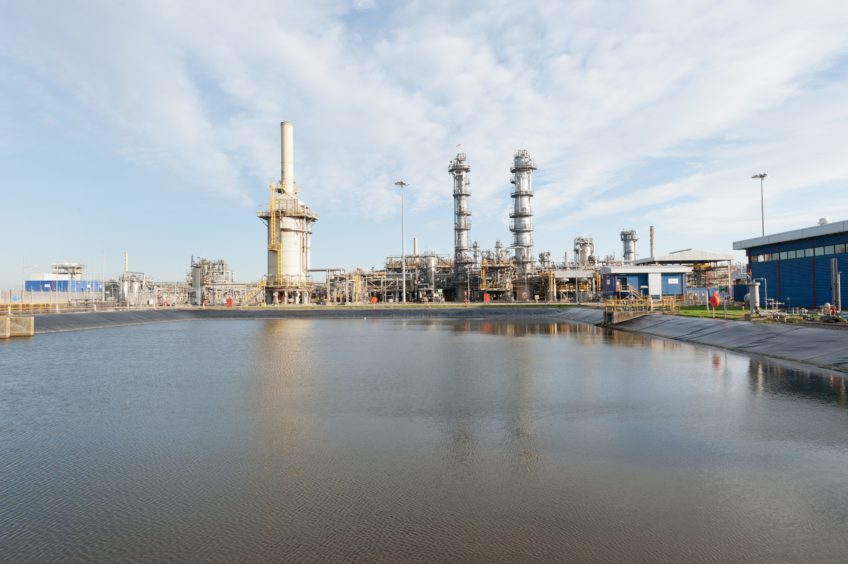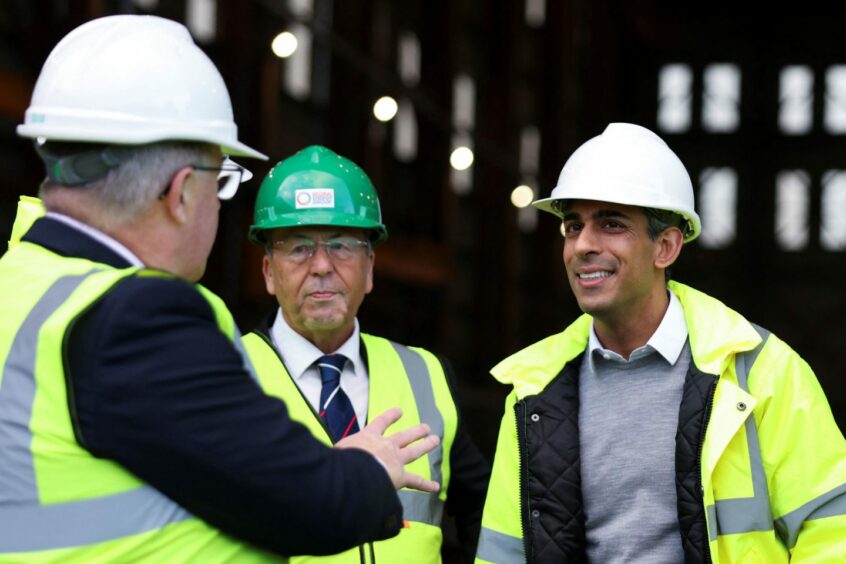
Scotland’s First Minister is upbeat about the prospects for a major north-east decarbonistion project, amid growing uncertainty about its future.
Nicola Sturgeon says she is “cautiously optimistic” of “good progress” for Aberdeenshire’s Acorn CCS initiative, ahead of a key UK Government announcement.
Westminster passed over the Scottish Cluster for Track 1 carbon capture and storage funding, opting instead for schemes in the north-east and north-west of England.
Instead, Scotland’s bid, which has Acorn at its heart, was made with the reserve cluster, with a general expectation it will be successful next time around.
After much delay, an update on Track 2 of the funding competition is expected to be made in spring, UK energy minister Graham Stuart has confirmed.
Scottish energy secretary Michael Matheson recently warned MPs that there is a risk investors will pull out of Acorn, based at the St Fergus gas plant, due to the setbacks.
But Ms Sturgeon, speaking at Scottish Renewables’ Offshore Wind Conference in Glasgow, is hopeful that good news isn’t far off.
She said: “We’ve been pushing very hard for it to be accelerated and given support, and I am cautiously optimistic that we will see good progress on that in the coming months.”
Acorn, which is exploring stowing carbon is disused fields below the North Sea, is being developed by Storegga, in partnership with energy giants Shell and Harbour Energy
Nick Cooper, chief executive of Storegga, said: “We appreciate the Scottish government’s valuable ongoing support for the Acorn projects and the Scottish Cluster.
“The ability for Scotland and the UK to meet their Net Zero commitments is at a tipping point. The UK is falling behind faster moving countries, such as the US, in harnessing the growth that flows from providing sufficient low cost, multi-user CCUS projects that will enable industrial and rejuvenation.
“The Acorn projects in the Scottish Cluster are ready to play a significant role in the decarbonisation of industry and power and are waiting for the green light from the UK government.”
Movement at Acorn is “really important” for the north-east, Ms Sturgeon said, in light of the region missing out on securing a green freeport.
A bid that covered Peterhead and Aberdeen was put before the Scottish and UK Governments, but news broke this month that it had lost out to offers from the Cromarty Firth and Forth.
It is expected that green freeports, which guarantee far-reaching tax incentives and light-touch regulation, will create hundreds of jobs, propelling just transition efforts.
Given its ties to North Sea oil and gas, the north-east’s failure to secure a green freeport was met with fury, and claims that governments had “shafted” the region.
Ms Sturgeon said: “All of the bids were really strong, and those that didn’t succeed at this stage feel a sense of disappointment and concern about the future. That is true for all of them, but I suspect it is possibly even more true for Aberdeen, given the centrality of the region to the energy transition.
“It is really important, and this is a point we’ve made to the UK Governemt on this, that we continue to support those areas that didn’t succeed to become green freeports.”
Ms Sturgeon also defended the decision to create the low-tax zones, after some criticism about their efficacy, particularly from her coalition partners in the Scottish Greens.
She said: “Some people have scepticism about freeports – do they really deliver added benefit? Or displace opportunities from elsewhere?
“I believe the answer to that can emphatically be yes, but that’s what we’ve now got to demonstrate and to prove.”

 © Supplied by DCT Media
© Supplied by DCT Media © PA
© PA